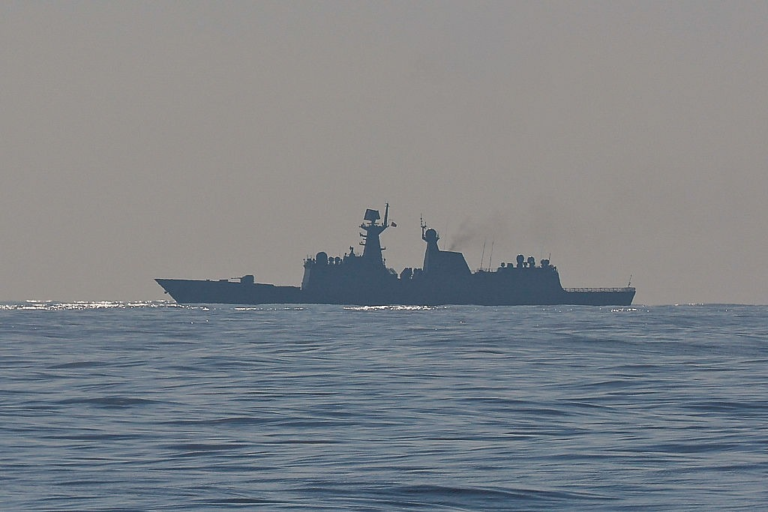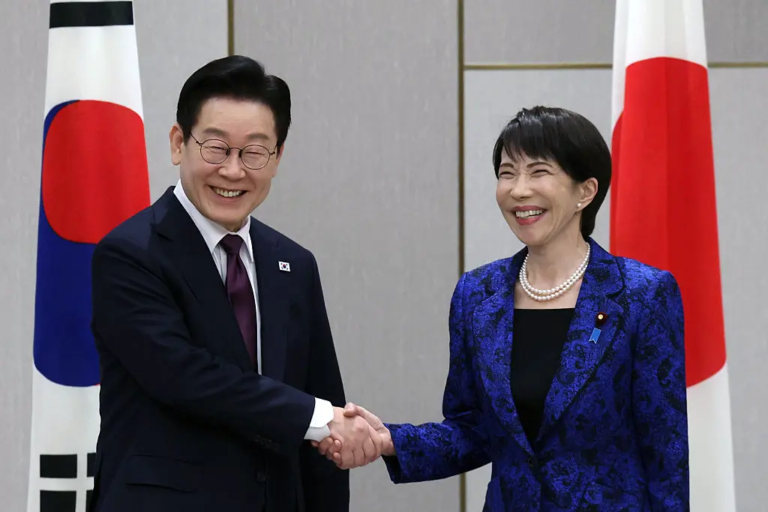
Australia, France and New Zealand deployed air and maritime assets to Northeast Asia recently to monitor international sanctions targeting North Korea’s weapons of mass destruction (WMD) programs.
A Royal Australian Air Force P-8A Poseidon patrol aircraft will operate from Japan’s Kadena Air Base as part of the Australian Defence Force’s (ADF) contributions to upholding trade prohibitions on Pyongyang.
“Australia remains committed to enforcing United Nations Security Council sanctions against North Korea until it takes concrete steps towards denuclearisation,” Vice Adm. Justin Jones, the ADF’s joint operations chief, said in October 2025. “Our deployment reinforces Australia’s strong commitment to uphold international law and support the rules-based global order.”
A Royal New Zealand Air Force P8-A Poseidon and the Royal New Zealand Navy sustainment vessel HMNZS Aotearoa also joined the multinational coalition, along with a French Navy Falcon 50M patrol aircraft.
Since North Korea conducted its first nuclear weapon test in 2006, the U.N. Security Council has adopted major resolutions sanctioning the authoritarian regime over its nuclear and missile activities. The sanctions prohibit or limit trade relating to weapons and military equipment, dual-use technologies, industrial machinery, rare-earth minerals, and coal, oil and petroleum products.
A dozen or so nations, including Japan, South Korea, the United Kingdom and the United States, contribute aircraft, ships and personnel to the Enforcement Coordination Cell (ECC). Based at Yokosuka, Japan, under the U.S. Indo-Pacific Command, the coalition identifies smuggling and disrupts black market networks in the East China Sea, Sea of Japan and Yellow Sea.
The EEC is a component of the U.S.-led Pacific Security Maritime Exchange, which formed in 2018 to monitor compliance with the resolutions.
Concerns over sanctions violations have heightened since North Korean dictator Kim Jong Un began sending weapons and thousands of troops to aid Russia’s war against Ukraine. In return, Moscow is believed to have provided Pyongyang with money, oil and technological assistance for its illicit WMD programs.
The Falcon 50M deployment was the sixth by French aircraft for sanctions monitoring since 2019. The crew operated from Okinawa, Japan.
“Japan welcomes these activities from the viewpoint of ensuring effective implementation of the relevant [resolutions] in solidarity with the international community toward the realization of North Korea’s dismantlement of all weapons of mass destruction and ballistic missiles of all ranges in a complete, verifiable, and irreversible manner,” the Foreign Affairs Ministry stated.
“As Japan has also been conducting information gathering activities for vessels suspected of violating the [resolutions], Japan works closely with relevant countries and international organizations, including the French Republic.”

Under its Operation Argos, the ADF has deployed aircraft and ships to monitor sanctions since the EEC was established and “continues to play a vital role in maintaining peace and security in the Indo-Pacific,” Jones stated.
During its 2024 mission, the HMNZS Aotearoa located four vessels of interest, questioned 62 vessels and broadcast 52 deterrent messages, while conducting nine replenishments at sea to extend partner nation deployments, the New Zealand Defence Force stated.
“Supporting the international rules-based order is a very real statement,” said Cmdr. Rob Welford, the Aotearoa’s commanding officer. “I know I can talk on behalf of everybody aboard the ship when I say we’re looking forward to playing our part again.”




